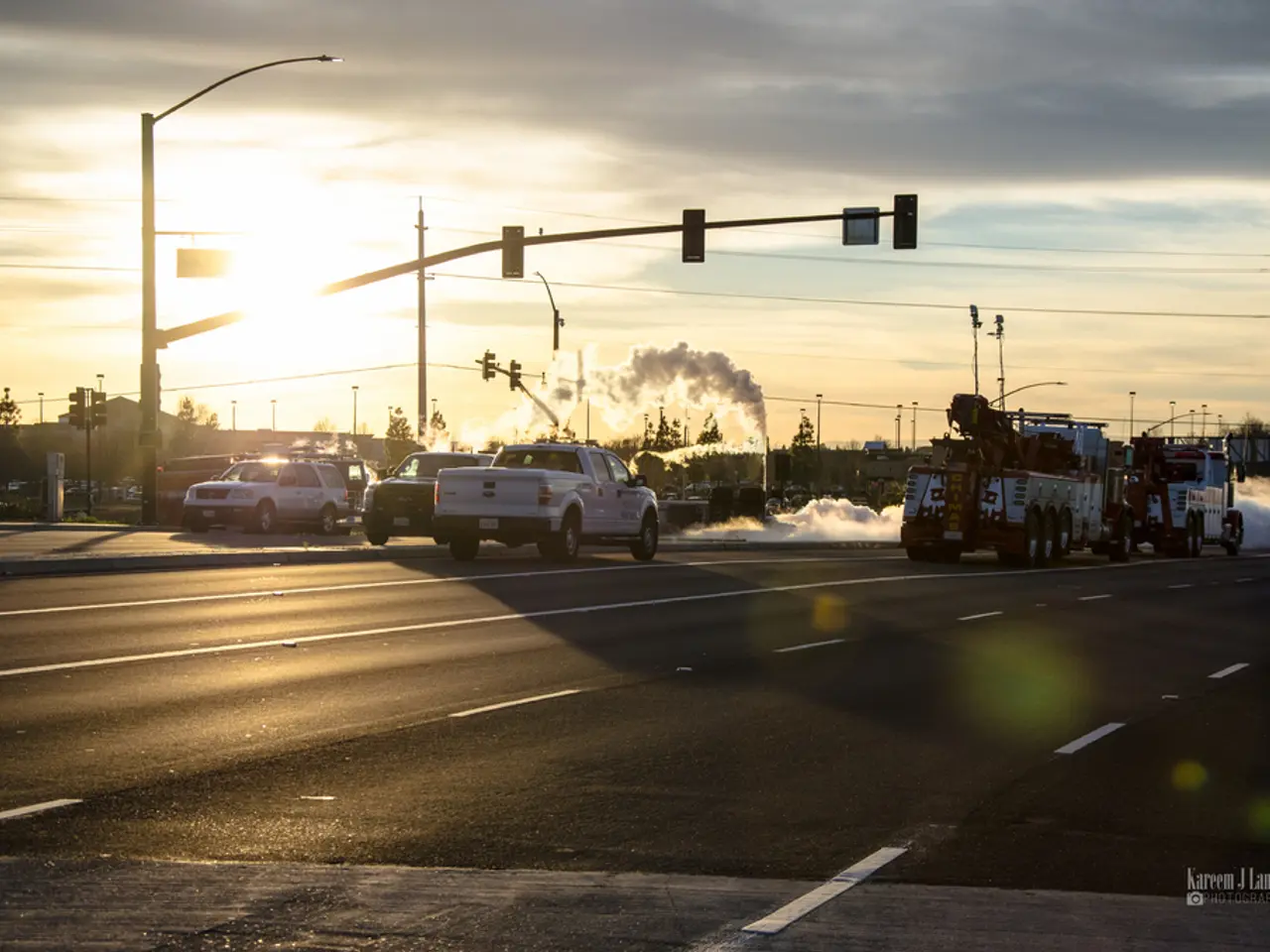Economic Impact of Severe Heat Waves in France
Heat Wave Takes a Toll on France's Economy and Businesses
A severe heatwave currently sweeping across France is causing significant challenges for various sectors, as evidenced by the impact on businesses and the economy. According to a study by Allianz titled "The economic cost of heat waves," the heatwave could potentially lead to a loss of GDP to France by 0.3 points, equivalent to nearly 9 billion euros.
The heatwave is causing noticeable declines in business activity, as seen in the bakery sector. In a bakery in Val-d'Oise, productivity decreases as the temperature rises, making baking more challenging. Work efficiency drops by 40% beyond 32 degrees and 67% beyond 38 degrees. Christophe Rouget, the founder of the bakery, has observed a significant decrease in customer traffic. Customers are opting for drinks only instead of their usual sandwiches, pastries, and drinks.
Laetitia Guilbert, located in an orchard in Villaudric near Toulouse, is forced to harvest her apples and peaches immediately to prevent spoilage. The heatwave is causing fruits to ripen earlier than expected, posing potential challenges for simultaneous harvesting due to a lack of cold room storage.
The heatwave is also impacting the retail sector, potentially reducing clientele by 15%. Some shops are experiencing reduced customer traffic due to the heat. Nuclear power plants are being shut down due to the heatwave, leading to energy production impacts. Trains are being cancelled as a result, slowing down the economy's engine.
The heatwave is not only affecting agriculture, industry, transportation, and retail sectors but also labor productivity. Multiple nuclear reactors were shut down to prevent environmental harm, leading to energy production impacts. Construction work was suspended in affected departments, and overall productivity has slowed due to the need to protect workers from extreme heat.
While the total economic loss specifically attributable to the heatwave in France is not yet calculated or published, Moody’s Analytics notes that heat waves currently cost around 1% of global GDP and could rise to 3% by 2050 if no climate action is taken. France faces additional challenges due to low household air conditioning adoption, building inefficiencies, and infrastructural stresses from extreme heat.
In conclusion, the heatwave is causing notable economic harm across numerous sectors, consistent with broader European heatwave estimates of around 1% of GDP loss currently. The heatwave's impact on businesses, such as the bakery, serves as a stark reminder of the challenges faced during such extreme weather events.
- The impact of climate-change, as demonstrated by the current heatwave, extends beyond agriculture, affecting industries that rely heavily on science, such as environmental-science research, which might face challenges due to altered natural conditions.
- The economic fallout from extreme heatwaves, like the one currently affecting France, often reverberates in unconventional areas like finance, as Moody’s Analytics suggests that heatwaves currently cost around 1% of global GDP and could rise to 3% by 2050 if no climate action is taken.
- As the heatwave brings various sectors to a standstill, it forces a reassessment of cultural values, pushing the need for sustainability in industries and business practices, necessitated by the increasing influence of science and environmental-science on the climate-change discourse.




